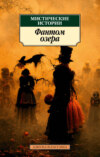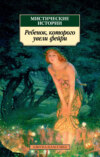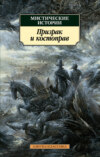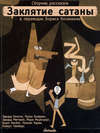Читать книгу: «Daisy's Aunt», страница 8
CHAPTER XIV
It was about half-past three in the afternoon of the next day, and house and garden alike wore a rather uncomfortable air of heat fatigue and somnolence. The blinds were down in all the windows that faced south and west, with the object, no doubt, of keeping them cool – a most desirable condition of things, but one, on the present occasion, but imperfectly realized. Nor were things much better to the east of the house, where ran the deep verandah in which they had sat and from which Daisy had strayed the evening before; for the heat came no longer from the honest and scorching rays of the sun, but through a thick blanket of grey cloud, which all morning had been gradually forming over and obscuring the sky. Southwards there was rather an ugly glare in the day, a tawny, coppery-coloured light that spread from low on the horizon, where clouds of thicker and more palpable texture were piled together – clouds with hard edges and angry lights in them. It was certain there was going to be a storm somewhere, and that would be no bad thing, for the air was horribly sultry, and quite distinctly needed clearing.
Daisy was always susceptible to atmospheric conditions, and she had gone upstairs after lunch to her room, on the plea, a fairly true one, of thunder-headache. Aunt Jeannie had been eager with sympathy, smelling-salts, and offers to read, but Daisy had quietly rejected all these, saying that it was merely a question of thunderstorm. When the storm broke she would be better; till then smelling-salts would not help her.
"It's quite darling of you, Aunt Jeannie," she had forced herself to say at the end, with a cordiality that was somewhat hard to put into her voice; "but, really, I would sooner be alone. It isn't a bad headache either – only just a thunder one."
There was a window-seat in her room, well lined with cushions, and looking over the river, and it was here that Daisy was rather uneasily reclining herself. She had first tried lying on her bed, but the room was too airless except close by the window to be tolerable. Partly that, partly (half an hour ago) the sound of voices outside, had made her come over here, and it was to see what was happening to those whom she had heard talking, as well as to get what air there was, that kept her here now.
A breath-holding immobility lay over river and garden; no quiver moved in the aspens or shook the leaf-clad towers of the elms and chestnuts. It was as if, instead of being clad in soft and sensitive foliage, they were cast in iron. No note of birds came from the bushes, no ripple broke the metallic hardness of the river, and the reflections of the loose-strife and tall grasses along its edges, and the clump of chestnuts on the little promontory at the corner of the garden, were as clear-cut and unwavering as if they had been enamelled on steel. There was no atmosphere in the day; no mist or haze, in spite of the heat, shrouded or melted the distances; the trees and house-roofs of Maidenhead a mile away seemed as if a stretched-out finger could be laid on them. They were of Noah's Ark size; it was only minuteness that showed their remoteness.
There was a punt underneath these chestnuts at the corner of the garden, partly concealed by the low sweep of the boughs. Half an hour ago Daisy had heard Aunt Jeannie's voice below her window saying, "Yes, with pleasure. But we shall be wise not to go far, as I am sure there will be a storm." It was at that that Daisy had left her bed and come across to the window-seat, to see with whom Aunt Jeannie was not going far. But before she had got there another voice had told her who it was. They had not gone far; they had gone about fifty yards from the boathouse.
She could see the lines of the punt among the leaves; there was a great pile of crimson cushions and a woman's figure dressed in grey. In front of it sat a man's figure in flannels, with shirt-sleeves rolled up to the elbows. Even as Daisy looked, Aunt Jeannie passed him a couple of cushions, and he too sat down on the floor of the punt, close to and facing her. Daisy had said her headache was not bad, and that it was only thunder-headache. Neither of these assertions was quite true. Her headache was bad, and it was not, in the main, thunder-headache at all; it was headache born of trouble and perplexity and struggle. She did not in the least understand what was happening.
She had got up early that morning and had gone out before breakfast. Very likely she was out of sorts, and a row on the river in the coolness of the day was exactly the right thing to correct morbid and suspicious impressions, which were founded, so she told herself, not on facts, but on her own bilious interpretation of facts. And, indeed, in the fresh dewy morning she found, when she went out, that her imagination, which had been fairly busy most of the night fitting together, like a Chinese puzzle, the rather disturbing events of the day before, had been riotous and sensational. Lord Lindfield, for instance, it was true, had not come down here early yesterday, as he had suggested, but had gone with Aunt Jeannie to a concert. Clearly his coming down alone to spend the day with two (especially one) girls in the country would have been highly unconventional, and he was very wise not to. So that was disposed of. They had missed their train and motored down instead, arriving half-way through dinner. What of that? Unless she was prepared to aver that there had been no breakdown, what was there to build on here? So that was disposed of. They had played two games of billiards together last night – the second fifty, so it appeared, had been doubled – but why not? Before each game Daisy had been asked if she would not play, and had refused. Then he had said, as they parted on the landing, that he had never enjoyed a day more. And what of that? Did not Daisy herself have "the most heavenly evening I have ever spent" about seven times a week?
Like the sensible girl she was, she took her trouble to bits in that early morning row, as one may take the mechanism of a clock to bits, and found there was something faulty in every individual piece of its working. Clearly, therefore, the whole thing, when pieced together again, could not reasonably be considered a reliable clock, since there was something wrong with every single piece of it. But – here was the trouble of it – it seemed to her, when reconstructed and made into one, to keep excellent time, to be thoroughly dependable. Yet, since all its pieces were wrong, she would not accept the whole, and, tossing it overboard, so to speak, settled down for a spell of demon-dispersing exercise. It was still only a little after seven. She had two clear hours to get rid of her blues – for they already had become substantial enough to take this depressing colour – before breakfast.
She had returned, it must be confessed, in far more equable spirits; physical exercise had disposed her to a broader and more out-of-door attitude, while her determined effort not to be suspicious and maliciously constructive had done more.
Of all people in the world Aunt Jeannie was the least mean or ignoble-minded, and Daisy told herself that she had been measuring her actions by a standard so crooked that it would not lie straight along them. There should be no more such attempts, and no more looking from the dark into windows to see unseen what people were doing inside. Flushed and exhilarated by her row, Daisy's cheeks burnt a shade brighter that moment at the thought that it was indeed she who had done that.
It was still half an hour to breakfast-time when she got back to the boat-house, but already the heat of the day was begun, and the smell of the damp coolness of the night dried up. She strolled along the outside of the thick hedge that faced the river, and then, turning the corner, saw in front of her, not twenty yards distant, two figures standing alone together. The woman's two hands clasped those of the man, holding them against her breast. She was speaking softly and eagerly, smiling into his face.
Quick as a lizard, Daisy popped back behind the hedge before either seemed to have seen her, and went swiftly to the house. But this was more inexplicable yet – for the two figures she had seen were those of Aunt Jeannie and Victor Braithwaite. There was no questioning the intimacy of their attitude. Yet here again she had seen something she had not been meant to see; she would be a lamentable creature if she let her mind dwell on it, or try to construct its meaning and significance. It was not for her. But if the man's figure had been Lord Lindfield's she would have been less surprised.
She had earned an inactive morning by her expedition before breakfast, and announced her set determination to go no further than the elm-trees beyond the rose-garden, and when arrived there to do nothing whatever. From the other side of the table Lord Lindfield rose at this.
"Jove, Miss Daisy," he said. "I've been wondering since I got up, what's the matter with me, and now I know it's the need of sitting under a tree and doing nothing. I'll join your party, if you'll let me. Is talking allowed?"
"Yes, but nobody need answer. I usually shan't."
Jim Crowfoot got up.
"I'm not sure if I shall come or not," he said. "I think not. I feel rather inclined for conversation to-day."
"Better not come then, old chap," said Lindfield. "There's not much conversation usually when I'm with you. I never get a word in. Nor anybody else."
It was impossible to take offence at even this, so pure and friendly was the chaff. It may be said to Jim's credit that he did not even attempt to do so.
"What am I to do, then?" he asked. "I can't converse alone. – Mrs. Halton, will you talk to me?"
"No, Mrs. Halton's going to write letters all the morning," said Lindfield. "She told me so."
Just for a second Daisy allowed herself to think "So he already knew that," but it was but momentary. This mood of drawing inferences from infinitesimal data in other people's conduct was altogether detestable; she must not allow herself to do it.
"Yes, I'm going to be a virtuous woman," said Aunt Jeannie. – "Alice dear, will you get a nice dog-chain and fasten me down to a writing-table till I swear to you that I have written to everybody who ever writes to me?"
"If you wish, but if I chain you down you sacrifice the fineness of your virtue. You make a virtue of necessity."
"No," said Jeannie, "I make a necessity of virtue. I shan't be able to get up. Or is it the same thing?"
"You're clearly going to make a morning of it," remarked Lindfield.
Jeannie sighed.
"An afternoon as well," she said, "If my recollection of the size of a certain packet neatly labelled 'Unanswered' is at all correct."
"Shouldn't make a packet of unanswered letters," said Lindfield. "I burn them. Then you can start afresh."
CHAPTER XV
The next hour or two had fairly fulfilled the breakfast plans. Daisy, after the tiger accident to her parasol at the Zoo, had fallen back, for country use anyhow, on an immense scarlet contadina umbrella, and had planted herself and this under the elm-tree as soon as breakfast was over. Almost immediately after Lord Lindfield had followed her, with not quite so rigid an interpretation of idleness as Daisy, for she had brought absolutely nothing with her to occupy her hands or her mind, whereas he had a daily paper.
"Not a word or a sigh or a sneeze, Miss Daisy," he said, in a whisper, "or we shall be discovered. Not brought anything whatever with you? That's right. Just you yourself."
"You forget my parasol," said Daisy, "and it really isn't an insignificant affair."
"I know it isn't. I don't like it. It hides too much of you."
Daisy laughed.
"I suppose that means I have to put it down," she said.
"Well, I think it would be kind of you," he said. "You've been hiding yourself too much lately to my mind."
Daisy could not let this pass.
"Well, I like that," she said. "You threw me over all yesterday, which you said you were going to spend down here; you arrived with Aunt Jeannie in the middle of dinner, and played five thousand up with her afterwards."
"Yes, and when I do hope to catch a glimpse of you you hide yourself under a scarlet umbrella," he said. "That's better; thanks awfully."
Daisy furled the big umbrella, and threw it down on the grass. For the moment her mind was absolutely at peace again, and went back with a tremulous sense of happiness to the mood of the ball, so few evenings ago. And as she faced him, she thought again that it was a different man from the one she had known, and again saw that the difference was in herself.
"We had a great discussion, Mrs. Halton and I," he went on, "when we were sitting like wayside flowers near Ealing yesterday, as to whether people were nicer in the country or in town. I wonder which of us you will agree with."
"Oh, with Aunt Jeannie, I expect," said Daisy, not without challenge in her voice.
"H'm. That's a nasty one for me. Well, let's put it to the proof, anyhow. We agreed that some people are nicer in town and others in the country, but there we parted company."
"Ah, don't tell me," said Daisy. "Let me think."
She plucked a long grass stem and drew it through her teeth.
"The people one really likes and loves are nicer in the country," she said at length. "The people who just amuse you are nicer in town."
"Hurrah!" said he. "That's first-rate! It's what I said myself. Mrs. Halton wouldn't have any of that. She says that she herself is so much nicer in town that she refused to accept such a classification. Else it would mean that none of us liked her. But she stuck to the fact that none of us would like her so much down here."
Daisy considered this.
"How funny of Aunt Jeannie," she said. "I wonder – "
Then a whole collection of the things that poor Daisy had tried to put away from her mind flashed into it again, giving her a feeling of sickness and insecurity. What did it all mean?
"I wonder what she meant?" she added, truthfully enough.
"Don't know. Here she comes. By Jove! Miss Daisy, how splendid she looks."
Aunt Jeannie certainly was looking her very best this morning. She was walking hatless in the blaze of the sun, and somehow the sunlight seemed not so much to shine on her as to shine from her. Flowers, garden, river, sky, sun, were all so much less splendid than she.
"I love this heat," she said, "and it saps my moral nature and leaves me a happy animal with no sense of responsibility. Daisy dear, you needn't answer. I won't invade you for long. But I sat down at my table with all the unanswered letters, I looked them through, and determined not to answer one. I'm going to have a holiday from being good. I've been good too long, I think. The joy of virtue palls. But there ought to be wind; there is sun and sky and water and all nice things, except wind. Can't you – what's the phrase? – can't you raise the wind, Lord Lindfield?"
Tom Lindfield clicked his finger and thumb together.
"Jove! Mrs. Halton," he said, "you always think of the right thing, or make me do so." He jumped up. "I'll order the motor at once," he said. "You and Miss Daisy and I, let's all go out for a run. Old Puffing Billy always goes well up to speed limit the day after he's broken down."
Daisy's effort with herself that morning on the river suddenly came to the limits of its energy. Once again she saw everything in that light which she had tried so hard to extinguish. And now there was more added, there were further features in the scene. Aunt Jeannie was too clever for her; with how natural an air she had come out and said that only wind was necessary to make the morning perfect; and how naturally and how unconsciously had he responded to that subtly conveyed suggestion, the very subtlety of which made him believe that he had thought of the plan himself. But outwardly Daisy still was mistress of herself; it was from the inside, not the outside, that her control was beginning to give way. She put up the red umbrella again.
"Thanks awfully, Lord Lindfield," she said, "but I can't think of the grilling roads and the dust without putting up my neat little parasol again. But you are too ingenious for words! Aunt Jeannie comes out here and demands wind, and you instantly think of the only plan of giving it her. No, for me the book of verses, or, rather, the newspaper, underneath the bough will last till lunch-time. Has anything happened?"
Daisy spoke in the lightest possible tone; it required a woman to hear that beneath the light words a troubled spirit spoke. And Jeannie was sick at heart at the success of her scheme. She had heard at breakfast how these two meant to spend their morning; she was aware that others knew of the situation which existed between them, and would surely avoid the elm-tree by the rose-garden like a plague-stricken spot, and so she had come out here on her hateful mission, interrupting and breaking up their dangerous companionship.
She had been prepared to go further than this – to ask, if necessary, point blank, for the use of his car, and hint at the pleasure of his company. Part of that had been spared her; he probably had no inkling of her design in coming out and demanding wind; indeed he thought he had thought of it himself. But Daisy knew.
The tragic farce had to preserve the tone required of public performances.
"Daisy dear, won't you come?" she asked. "Three is the best company of all, I think."
Daisy turned over a leaf of the paper rather too smartly for a public performance.
"Indeed, I think I won't, Aunt Jeannie," she said. "I had such a long row before breakfast. I feel frightfully disinclined to move."
And she waited to hear Lord Lindfield urge her to come. But he was already half-way towards the house. Daisy just raised her eyes, and saw him already distant, and she felt that which she had often heard of before, but passed over as unintelligible. Now she understood it, for her heart swelled.
Aunt Jeannie followed after a general remark or two, to which Daisy could scarcely reply. And after that more trials were in store, for Willie Carton brought his patient presence out under the elm-tree which had promised so well and performed so badly, and lay on the grass and pretended to read a book.
It was very stupid of him to come, so Daisy thought, and rather selfish. She had given him so firm an answer, and if he reopened the question again she was determined to speak even more plainly. But he did nothing of the kind, and Daisy, quieting down a little from the tumult of her private thoughts, began to feel a little compassionate.
She knew now, in some kind of way, what was going on inside him. She realized the nature of that which brought him out here, to pretend to read a book. He wanted to be near her. And there was something of the pathetic faithfulness of a dog about him – a dog that is beaten and repulsed but never falters, or can falter, in devotion to his master. She had begun to know what that unreasoning devotion meant.
"I know the compact of the elm-tree is not to talk or expect answers," said Willie quietly. "Don't let me disturb you."
Daisy looked up at him swiftly.
"But if I said that you do disturb me?" she said.
"Then I should go away," he said.
"Oh, Willie, you don't," she said.
"Right. Tell me when I do."
And then poor Daisy began to have a headache. It got worse, and before long she rose.
"What a beastly day," she said.
"It is rather," said he. "But it's all right here."
"It isn't all right anywhere," said Daisy. "I shall go indoors. I've got a headache."
"Wish I could take it," said he.
"Oh, don't be foolish. Thanks awfully; I know you mean it. But one can't take other people's burdens, you know. We are all saddled separately, and – and all we can do is to pretend we aren't saddled at all, and make grimaces and pretend to enjoy ourselves. Do pretend – we all pretend."
"Oh, I've been pretending a long time," said he.
Daisy's headache gave her a stab that was quite unsettling.
"Men always think about themselves," she remarked. "Don't answer. It is the elm-tree rule."
"I shall answer. Was your remark that men always think about themselves meant to apply to me? I only want to know."
Daisy had some little sense of justice left.
"No," she said. "I don't think it was."
The motorists came back very late for lunch, just as the evening before they had come back late for dinner.
Such was Daisy's morning; and she felt she had a perfect right to a headache. And with her headache she lay in the window-seat of her bedroom and watched the punt, with its crimson spots of cushions, unwaveringly reflected in the surface of the Thames. Above the sky grew darker with the approach of storm, and the light grew more coppery with the rising of that curious cloud out of the south. But still this dreadful clearness of air continued in spite of the growing darkness.
Maidenhead was still close and distinct, and closer and more distinct was the punt, where Aunt Jeannie handed Lindfield two crimson cushions. Then in that darkness below the chestnut-tree a match was struck, and he lit a cigarette, and dropped the still flaming vesta into the Thames. Then he shifted his position a little, and sat nearer to that other figure dressed in grey, whose arm was leaning over the side of the punt, and whose hand just dabbled in the water.
And then Daisy suddenly hid her face in the cushions of the window-seat and began to sob.





















